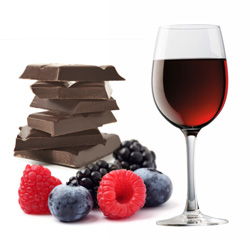I want to look after my brain
BUT
Can I drink alcohol? Is wine good for the brain?
Here’s the good news from neuroscientists.
Small intakes of alcohol will protect you against dementia.
How do they know?
Scientists in the UK analysed data from 23 studies looking for any relationship between cognitive decline and memory loss in older adults.
Their surprise finding?
‘Low to moderate alcohol use is associated with a 38% reduced risk of dementia, and a 32% reduced risk of developing Alzheimer’s disease. [1]
Of course, common sense rules!
Excessive alcohol use leads to reduced reasoning and memory skills.
Effects of heavy alcohol use.
But you can enjoy one guilt-free glass of red wine and it KNOW it can benefit your brain and memory health. Red wine is good for the brain.
More Evidence:
In one large study (1000+ people over 65) in Pennsylvania [2] were tested at two-year intervals for memory, problem-solving and reasoning skills.
Again, light and moderate drinkers experienced less decline than non-drinkers.
In another large study of 7,485 Australians aged between 20 and 64 years of age the same results were found: People who drank moderately (up to 7 drinks a week for females and up to 14 drinks a week for males) performed better than abstainers on all measures of cognitive abilities. [3]
How can this be?
The antioxidant resveratrol is the secret.
Resveratrol (Mayo Clinic):
- important in the maintenance of the hippocampus
- greater connectivity between the neurons
- helps prevent blood vessel damage
- reduces low-density lipoprotein (LDL): high levels of this cholesterol raises the risk of heart disease and stroke. Read more
From the University of Virginia:
The resveratrol in one glass of red wine three or four times a week may be enough to help slow the progression of cancer-feeding proteins, helping to starve certain cancer cells.[4]
What if we don’t drink alcohol?
Don’t worry!
German researchers in a recent study found that using a 200 milligram resveratrol supplement boosted short-term recall and improved concentration.
More good news!
The compound resveratrol is found in dark chocolate, peanuts and blueberries, too.
Anyone for a glass of pinot noir and chocolate?
1 Peters, R. et al. Alcohol, dementia and cognitive decline in the elderly: a systematic review. Age and ageing, 2008, 37, 505-512.
[2] Ganguli, M., et al. Alcohol consumption and cognitive functions in late life: A longitudinal community study. Neurology, 2005, 65.
[3] Rodgers, B., et al. Non-linear relationships between cognitive function and alcohol consumption in you, middle-aged and older adults: The PATH Through Life Projects. Addiction, 2005, 100(9).
4 Witte, V.A., Kerti, L., Margulies, D. S., et al. Effects of Resveratrol on memory performance, hippocampal functional connectivity, and glucose metabolism in healthy older adults. The Journal of Neuroscience, 2014.





I had a nice friendly chuckle when I read your piece on moderate alcohol consumption
as it did not help my late wife who enjoyed both wine and dark chalet in moderation.
The poor dear put up with alzheimers for nearly five years .
And yes I am aware that it is not cure !!
I have often read about the benefits of dark chocolate and red wine; so I will happily continue eating dark chocolate (over 70% cacao), and red wine – both in moderation though.
Absolutely! ‘Everything in moderation’ is a phrase my Uncle used frequently and it still makes sense.
Really glad to hear your comments.
I have enjoyed red wine and dark chocolate for more than 40yrs. and now over 80 and going strong! .
I agree, moderation must be a factor.
Oh dear, I drink white wine !
Am I a lost cause ????
Not at all! Especially in the amounts specified …. lots of lovely ingredients in white wine as well.
What an interesting study reading all the above.
Also hearing the Radio interview Doug Wilson with
Kim Hill.
Excellent Thank you.
Oh my, am I slated for the horror of memory loss. I have been a heavy drinker most of my life but don’t drink now…well in moderation. With abstinence can the brain repair itself from this destruction?
thank you
Now that is a very interesting question, Janet. We know that through the miracle of neuroplasticity the brain can do amazing things. It was in 2004 that there was the first real research to discover if the brain could recover from heavy alcohol consumption. Thre were promising signs, and since then research has found that while the brain is impaired by large amounts of alcohol, recovery starts very soon after that stops – within about 14 days the brain starts to bounce back. It seems to be that large amounts of alcohol causes brain shrinkage, which results in memory loss, difficulty concentrating and so on. Different brain regions recover at different paces and while some cells may be lost with heavy drinking, the brain shrinkage can indeed be reversed. Researchers have found that when the drinking is controlled then the generation of new brain cells starts again – wonderful news. It was also found this starts just a few days after the turnaround in drinking habits. Some of the cognitive function can take a while to catch up, but improvements and recovery just keep on accumulating. This information comes from research at the Stanford University School of Medicine. So, Janet, keep on with plenty of interesting brain challenges to boost the regeneration. And well done on changing a lifetime habit. Your brain will be thanking you!